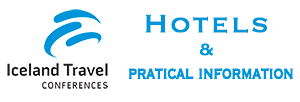The Special Interest Group Project Organising is focused on projects and programmes defined as temporary organisations with a goal and pre-determined life cycle. The Project Organising SIG is concerned with project-based/oriented organisations: firms or public sector agencies organised to promote and/or deliver projects or to implement their Strategies and changes by projects and programs.
SIG OFFICERS:
SIG board for 2018:
Martina Huemann, WU Vienna University of Economics and Business, Austria (Chair).
Pernille Eskerod, Webster Vienna Private University, Austria (Chair Elect).
Alexander Kock, Technische Universität Darmstadt, Germany (Programme Chair and Communication Officer).
Monique Aubry, University of Quebec at Montreal, Canada (Track Chair, responsible for reviews).
Miia Martinsuo, Tampere University of Tehnology, Finland (Professional Development Support Officer).
Treasurer:
Graham Winch, Manchester Business School, UK.
Social Media Managers:
Leticia Fuentes-Ardeo, University of the Basque Country, Spain.
Maria Aguilar-Fernandez, University of the Basque Country, Spain.
Past Chairs, but still active:
Graham Winch, Manchester Business School, UK.
Miia Martinsuo, Tampere University of Technology, Finland.
Hans Georg Gemünden, Berlin University of Technology, Germany.
Rodney Turner, SKEMA Business School, France.
Christophe Midler, École Polytechnique, France.
Brian Hobbs, University of Quebec at Montreal, Canada.
SIG contact 2018: Alexander Kock This email address is being protected from spambots. You need JavaScript enabled to view it.
GT 10_00 Project Organising - SIG General Track
The Project Organising track provides an international platform to share and debate topical issues in the management of projects as temporary organisations and their context in organisations or inter-organisational networks. This includes the management of single projects, mega projects, programs, and project portfolios, as well as project-oriented organisations, which deliver projects to external or internal customers, and project networks or multi-enterprise meta-organisations created to deliver projects. We invite conceptual as well as empirical papers based on quantitative, qualitative or mixed methods. In our track, we run competitive sessions as well as development sessions, to help authors further develop their papers.
PROJECT ORGANISING SIG TRACKS
T 10_01 Making a Difference: Action Research and Engaged Scholarship in Projects and Innovations
Making a difference with action research and engaged scholarship in projects and innovations goes hand in hand with the overall EURAM 2018 theme ‘research in action’. Action research involves close cooperation between practitioners and researchers to bring about sustainable change. Engaged scholarship has a broader perspective as a participative form of research for obtaining different perspectives of key stakeholders in studying complex problems. Action research and engaged scholarship offer a grand opportunity to address key challenges in project management in a novel and constructive way. This track calls for papers involving action research, collaborative research, design research, co-creation of knowledge and beyond.
T 10_02 Managing Major and Mega Projects: The Importance to Broaden Classical Project Management Approaches
One word sums up the impact of major or mega projects is « transformational ». It could improve the quality of life of individuals, foster the growth of a national economy, develop entire cities to become more attractive places to live and visit. While the transformational impact of these projects can be recognized, few have been able to quantify properly the benefits in terms of economic growth and societal change or to evaluate the tangible impacts and advantages for the society. Few have considered new eras to understand these transformational issues and a small number of researchers have looked at more innovative approaches to improve the management and governance of these major and mega projects. This topic raises the importance to broaden the classical project management approaches in managing and governing major and mega projects to develop knowledge, better understand and consider their transformational impacts and benefits for the society.







